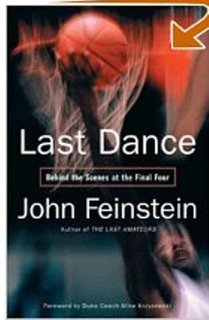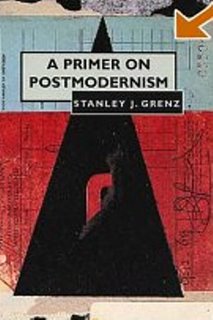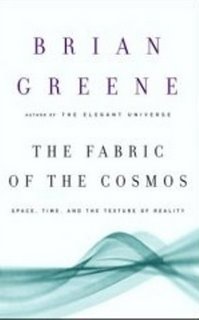The Humor of Christ
Elton Trueblood
A bold challenge to the traditional stereotype of a somber, gloomy Christ. The Humor of Christ inspires Christians to redraw their pictures of Christ and to add a persistent biblical detail: the note of humor. (From the book covers)
Last Dance: Behind the Scenes at the Final Four
John Feinstein
Feinstein has long been a favorite sports writer since reading Season on the Brink. As a college basketball fan, I couldn’t help but check this book out from my local library. This book is a great look behind the scenes at the Final Four and is full of valuable insight and interesting side stories. Feinstein does a great job of really capturing the essence of the Final Four and the magnitude of the event from a coaches and players perspective blending a richness of the history and the event with the 2005 tournament.
A Primer on Postmodernism
Stanley J. Grenz This has long been on my “need to read” list. Grenz does a great job at providing a background leading up to and a readable exposition of current postmodern thought. His book is written in such a way that those with little to no previous background knowledge of philosophy won't be lost. (Works for me.) An excellent introduction into postmodernism Grenz takes the reader historically into an understanding of the modern thinkers who have defined postmodernism in very readable terminology. Toward the end of the book Grenz contemplates similarities between the Christian faith and postmodernism and a response in presenting the message of Jesus.
This has long been on my “need to read” list. Grenz does a great job at providing a background leading up to and a readable exposition of current postmodern thought. His book is written in such a way that those with little to no previous background knowledge of philosophy won't be lost. (Works for me.) An excellent introduction into postmodernism Grenz takes the reader historically into an understanding of the modern thinkers who have defined postmodernism in very readable terminology. Toward the end of the book Grenz contemplates similarities between the Christian faith and postmodernism and a response in presenting the message of Jesus.
The Fabric of the Cosmos: Space, Time, and the Texture of Reality
Brian Greene
As a boy, Brian Greene read Albert Camus' The Myth of Sisyphus and was  transformed. Camus, in Greene's paraphrase, insisted that the hero triumphs "by relinquishing everything beyond immediate experience." After wrestling with this idea, however, Greene rejected Camus and realized that his true idols were physicists; scientists who struggled "to assess life and to experience the universe at all possible levels, not just those that happened to be accessible to our frail human senses." His driving question in The Fabric of the Cosmos, then, is fundamental: "What is reality?" Over sixteen chapters, he traces the evolving human understanding of the substrate of the universe, from classical physics to ten-dimensional M-Theory. (From Amazon.com review)
transformed. Camus, in Greene's paraphrase, insisted that the hero triumphs "by relinquishing everything beyond immediate experience." After wrestling with this idea, however, Greene rejected Camus and realized that his true idols were physicists; scientists who struggled "to assess life and to experience the universe at all possible levels, not just those that happened to be accessible to our frail human senses." His driving question in The Fabric of the Cosmos, then, is fundamental: "What is reality?" Over sixteen chapters, he traces the evolving human understanding of the substrate of the universe, from classical physics to ten-dimensional M-Theory. (From Amazon.com review)
Wednesday
Currently Reading
Subscribe to:
Post Comments (Atom)
No comments:
Post a Comment